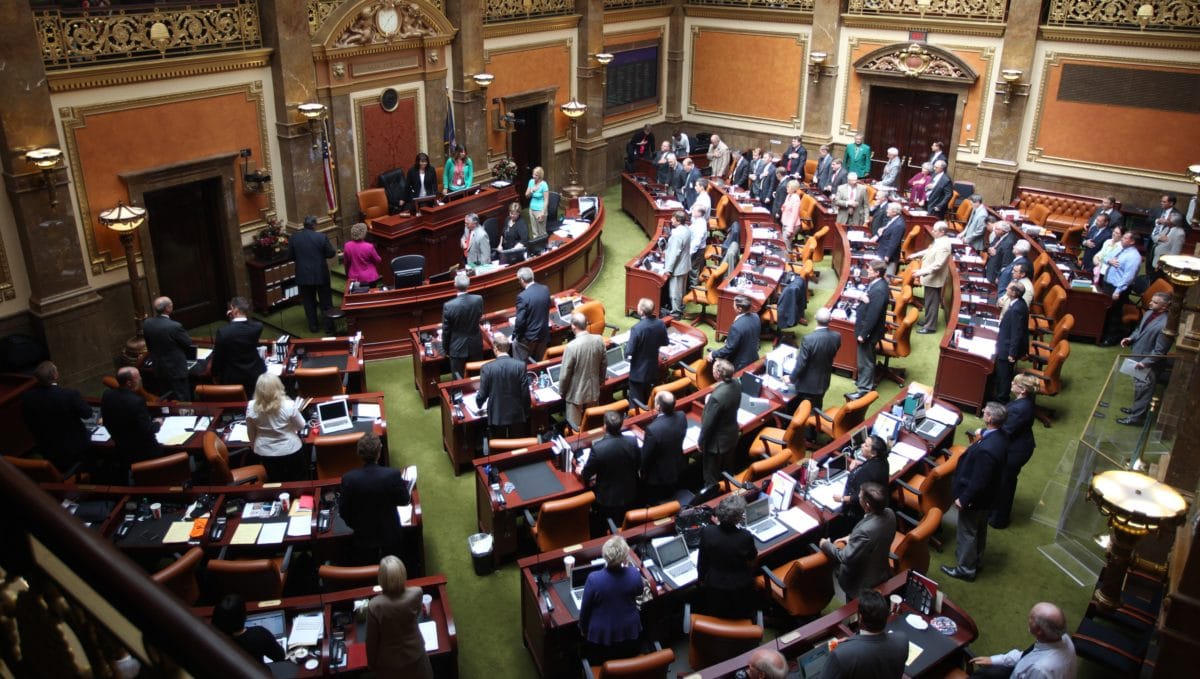From just looking at me, you would not expect me to be a minority, especially at Brigham Young University. I am a white male, the same as half of the student population at BYU. I am also a Mormon, so I shared the same religious beliefs with almost the entire student body.
However, during my time at the J. Reuben Clark Law School, I was a minority among my classmates. I quickly found out that I was among only a handful of people who had progressive views. My thoughts on the Constitution, social progress, and other issues were drowned out amidst an overwhelming conservative majority who seemed to worship the ground where Justice Scalia walked. Furthermore, I was the guy who allowed the law school to mark down one person in the LGBT column of their statistics — a distinction made all the more pronounced as I went out to help fight for LGBT rights during an internship with the ACLU in New York City.
I will not assume that I can speak for my fellow classmates, but I personally feel my presence at BYU Law helped add some semblance of balance to the discussions we had in classrooms, seminars, and hallways. Although I shared large portions of my background with everyone else, the different perspectives I was able to add to our shared legal learning was something that helped us grow beyond what we otherwise would have experienced.
My law school experience is one of the reasons why I feel so concerned about Rep. Norm Thurston’s bill, HB 11, which just passed the House and Senate and is now headed to the Governor for his signature. This bill removes partisan membership requirements for twenty-eight state boards and commissions. When appointing members to these boards and commissions, the governor is currently required to make sure that only a certain proportion of members come from any one party. In effect, this prevents Governor Herbert from appointing only Republicans and ensures that Democrats, unaffiliated, and members of other political persuasions have a voice on these decision-making bodies.
I acknowledge that Republicans are the majority party in both population and state legislators. To a certain extent, it makes sense that legislators would want to make sure their party is also proportionately represented in other areas of government as well. However, this cannot be the aim of this bill because proportionate party representation is already being achieved under the current requirements. What this bill would do is allow the Governor to potentially appoint members of only his party to these boards and commissions, shutting out other backgrounds and perspectives that can lead to more balanced decision making.
Just take a quick glance at the issue areas impacted by decisions of the boards and commissions listed in HB 11: air and water quality; alcohol; public utilities; financial institutions; conservation and population growth; drinking water; waste management and radiation control; public health; labor appeals; oil, gas, and mining; consumer services; and business and economic development. Can it seriously be said that different perspectives on these issues do not lead to better outcomes? Republicans, Democrats, those of other parties, and those of no party at all have all contributed ideas and policies resulting in better solutions for everyone involved.
After a tough first year of law school, I was seriously considering transferring to another school to finish my legal education. Fortunately, I received advice from some very good friends and caring administrators that I should stay so I could contribute to creating at least a small measure of balance among my peers.
It is unfortunate to see our collective national discourse moving in the opposite direction. The public and our representatives are becoming more and more politically polarized, refusing to work together or compromise with those who have differing perspectives. My hope is that Utah politics continue to be immune to this unfortunate trend and that our legislators realize that when we close ourselves off to balanced discourse, such as through HB 11, we are worse off than we were before.

